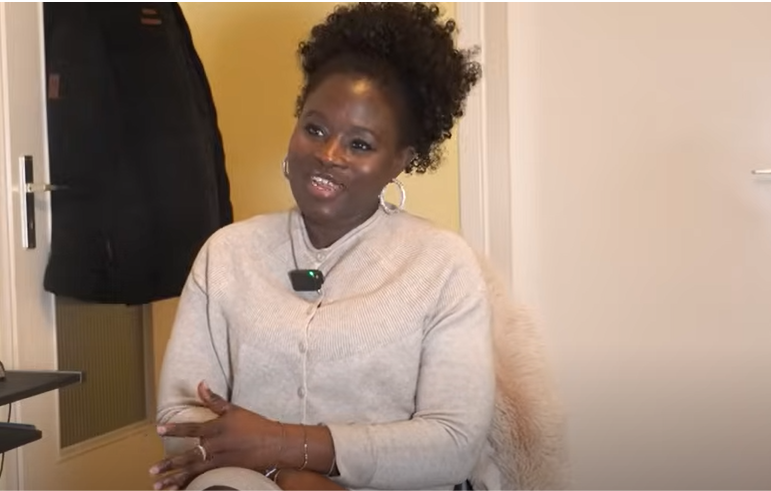Actress Rosemond Opens Up About Marital Struggles
Germany-based Ghanaian actress Rosemond has recently shed light on the tumultuous experiences she faced in her marriages, revealing the harrowing details of her marital struggles.
In a candid interview with Zion Felix on January 14, 2025, Rosemond, who has been married three times, bravely shared that her third marriage was marred by severe abuse.
Recalling the traumatic impact of the abuse, Rosemond revealed the heartbreaking loss of pregnancies during her time with her third husband.
“I became pregnant twice with my third husband, but because of him, I lost both pregnancies. He pushed me down a staircase during my first pregnancy, and with the second pregnancy, which was twins, I lost them after he attacked me while I was in bed. Before I regained consciousness, I found myself in an ambulance.”
When asked about the challenges she faced in maintaining her relationships, Rosemond vehemently denied being the root cause, attributing her struggles to unfortunate circumstances.
“I am not a bad person. My mother used to tell me that if someone doesn’t know me well, they might assume I have a bad character, but that’s not the case. Interestingly, after leaving, they always come back pleading for me to take them back. Currently, my third husband is asking for reconciliation. He even went to my mother to plead, but she didn’t agree.”

Now a single mother of three, Rosemond shared the challenges she encounters while juggling motherhood and work responsibilities.
“What I do is take them to school, then go to work, and make sure to pick them up on time. Sometimes I find someone I trust to look after them, like a neighbor. But when things get tougher, I rely on my mother to help.”
Despite the hurdles she faces, Rosemond remains steadfast in her commitment to raising her children and forging ahead with her life.
Plastic pollution is a global crisis that is threatening the health of our planet and its inhabitants. Every year, millions of tons of plastic waste end up in our oceans, rivers, and landfills, causing irreparable damage to the environment and wildlife. It is estimated that there are over 150 million tons of plastic waste in the world’s oceans, with an additional 8 million tons being added every year.
Plastic pollution is a complex issue that requires a multi-faceted approach to address. One of the biggest challenges in tackling plastic pollution is the sheer volume of plastic waste being generated. From plastic bottles and bags to packaging and microplastics, plastic is everywhere in our modern society. While recycling programs and initiatives have been implemented in many countries, the reality is that only a small percentage of plastic waste is actually recycled. The rest ends up in landfills, incinerators, or as litter on our streets and in our waterways.
One of the most concerning aspects of plastic pollution is its impact on marine life. Sea turtles, seabirds, fish, and other marine animals often mistake plastic debris for food, leading to ingestion and entanglement. This can cause serious harm, including internal injuries, starvation, and death. In addition, toxins from plastic waste can leach into the water and harm marine ecosystems, disrupting the delicate balance of life in the oceans.
Plastic pollution also has far-reaching implications for human health. Microplastics, tiny particles of plastic that are less than 5mm in size, have been found in drinking water, seafood, and even in the air we breathe. These microplastics can contain harmful chemicals and pollutants, which can be absorbed by our bodies and potentially cause health issues, such as hormonal disruptions and respiratory problems.
To combat plastic pollution, governments, businesses, and individuals must work together to reduce plastic waste at its source. This includes implementing policies to reduce single-use plastics, promoting the use of sustainable alternatives, and investing in recycling infrastructure. Consumers can also play a crucial role by making conscious choices to reduce their plastic consumption, such as using reusable bags and water bottles, avoiding products with excessive packaging, and properly disposing of plastic waste.
Ultimately, addressing plastic pollution requires a global effort and a shift in mindset towards a more sustainable and environmentally conscious way of living. By working together to reduce our reliance on plastic and finding innovative solutions to manage plastic waste, we can protect our planet for future generations and create a cleaner, healthier world for all.








